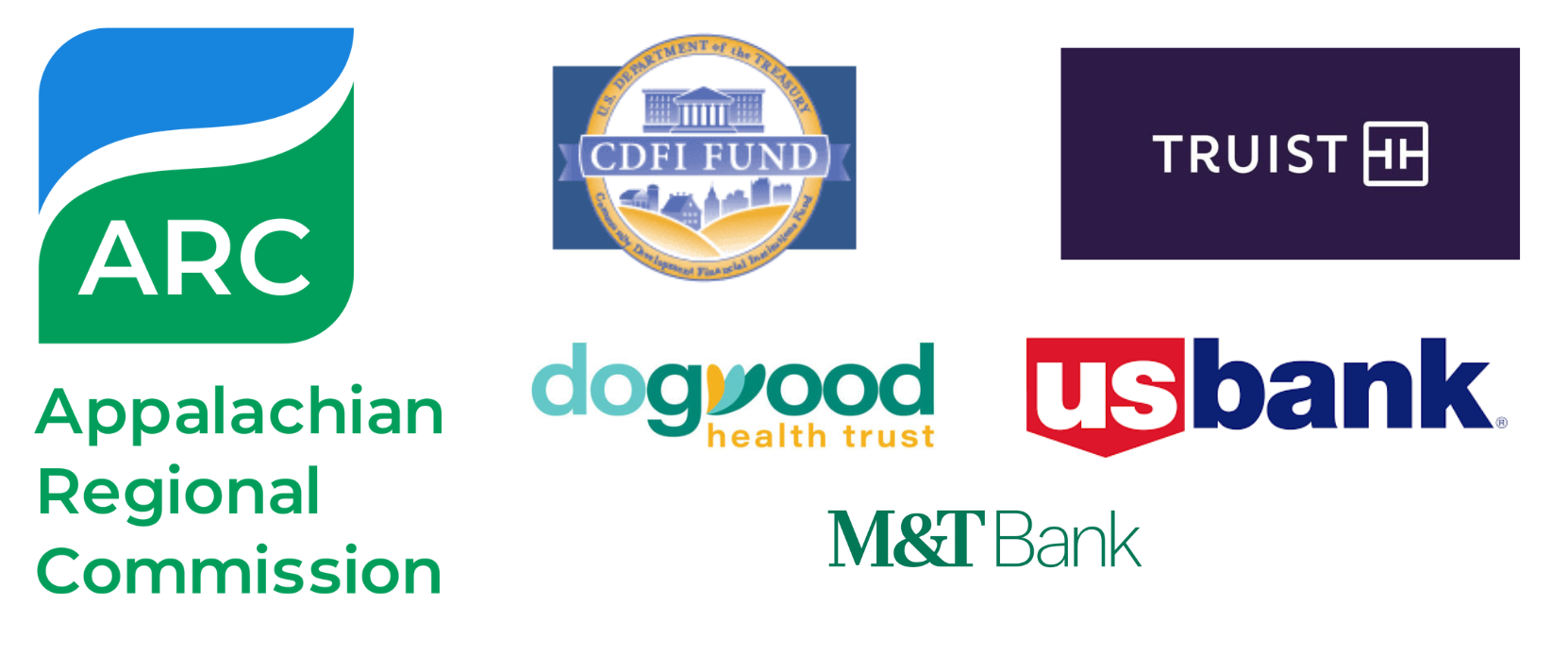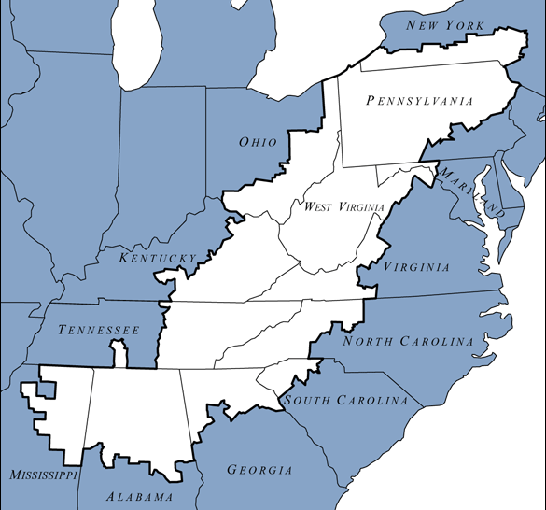Opportunity Appalachia
PROGRAM PARTNERS

2025 Investor Convening
Our 2025 Opportunity Appalachia Investor Convening is a two-day in-person event designed to connect investors with high-impact, well-supported projects across Central Appalachia.
This year’s Investor Convening features transformative community development projects – ranging from housing and clean energy to rural manufacturing and downtown development. Collectively, they’re seeking to raise over $250 million and create more than 2,200 quality jobs. Investors will get a front-row seat to polished investment pitches, network with fellow capital providers, and dig into the details of projects that capture their attention.
Asheville, NC, a city recovering from Hurricane Helene, is the perfect backdrop to illustrate the resilience and entrepreneurial spirit of Appalachia. We encourage banks, CDFIs, New Markets Tax Credit Funds, Public sector lenders, Public & private grantmakers, Impact investors, Historic Tax Credit investors, Opportunity Funds (QOFs), and other investors to find out more here!
ABOUT
Opportunity Appalachia brings new investment to Central Appalachian communities, creating jobs and businesses that support sustainable growth. We work with community real estate development projects that drive economic restructuring and diversification in underinvested areas.
Opportunity Appalachia provides access to technical assistance and supports capital raise activities for participating projects. As a technical assistance matchmaking program, we connect project sponsors with experienced providers to advance project readiness. Services range from architectural design and engineering to market assessments, financial projections, business plan development, and preparation of tax credit incentive materials. Importantly, we actively identify and engage investors, serving to lift up OA’s selected projects that otherwise would not reach larger investor audiences, demonstrate their investment potential, and connect to suitable investment partners.
Since 2020, we have supported 86 projects seeking to raise $700 million in financing and create 4,700 quality jobs. Our investment priorities include downtown development, housing, manufacturing, IT, healthcare, education, food systems, clean energy, and heritage tourism and recreation—primarily in rural communities.
Our portfolio of high-impact projects offers both strong social returns and attractive financial returns. Social benefits include the creation of 4,700 quality jobs, including opportunities for individuals in recovery, the long-term unemployed (such as former coal industry workers), and minorities and women. Increased investment in minority- and women-owned business enterprises, including minority developers and technical assistance providers, is also a program priority.
Opportunity Appalachia engages a diverse range of investors that prioritize high impact projects in underinvested areas, including: Qualified Opportunity Zone Funds, New Markets Tax Credit CDEs, Historic Tax Credit investors, banks, CDFIs, angel investors, crowd funding platforms, and public funders.
Financial supporters of Opportunity Appalachia include the Appalachian Regional Commission, US Treasury CDFI Fund, Truist, Dogwood Health Trust, The Claude Worthington Benedum Foundation, US Bank, and M&T Bank.

HOW WE WORK
Projects are selected through a robust outreach process that includes engagement with state and local economic development agencies, non-profit community-based organizations, private business owners and developers, CDFIs, banks, investment partners, and educational institutions. Our target geography includes Appalachian communities in KY, NC, OH, TN, VA, and WV, per the map below.
Target geography
Central Appalachia – Kentucky, North Carolina, Ohio, Tennessee, Virginia, West Virginia
For selected projects, a range of technical assistance is provided, including:
- development of investment prospectus, preparation of pro forma financial projections, structuring of project financing,
- market research, demand assessment,
- architectural and engineering,
- business plan preparation, operations planning,
- identification of project developers
- investor outreach
Our program does not hire staff to provide these services, but instead contracts with both in-region and national organizations for these services. Technical support averages $40,000 – $75,000 per project.
Once investment prospectuses are completed, Opportunity Appalachia and our Technical Assistance providers help local projects to outreach to investors, which include Qualified Opportunity Zone Funds, New Markets Tax Credit CDEs, Historic Tax Credit investors, banks, CDFIs, angel investors, crowd funding platforms, and public funders. As part of the program, selected projects will have the opportunity to pitch in front of investors at a highly visible Investor Convening, which highlights our portfolio of high impact projects in Central Appalachia that provide both robust social and sufficient financial return.

After the Investor Convening, Opportunity Appalachia continues to provide project sponsors critical opportunities to stay connected with the entire cohort of selected projects and the OA Program Team. When project sponsors share important lessons and successes, they encourage perseverance among all the project sponsors in the face of inevitable challenges in development finance. The ongoing support from the Program Team helps projects to problem-solve and to get creative when putting together a capital stack or business plan.





